Many mainframe installations have large quantities of legacy data stored in tape archives. When migrating applications off the mainframe onto midrange platforms, the question arises what to do with the legacy tape data. Much of the data will never be accessed but must be maintained for compliance. However, some of the data may require easy access by the migrated applications.
After the mainframe decommission there will be no hardware or software for accessing tape data and outsourcing solutions may turn out to be quite expensive. One should also not forget that in order to allow access to mainframe tape data a significant amount of “control metadata” is needed.
Several alternative approaches to mainframe data conservation may be considered, namely:
-
Dataset Migration Approach – Datasets are extracted from all the tapes and moved to disk files on the midrange platform (a Dataset Catalog is also created). This process, if performed on-line, can consume large quantities of compute resources such as tape drives and CPU cycles. Some data sets may also require a time-consuming conversion process (e.g. performing EBCDIC to ASCII or copybook directed conversion).
-
Control Metadata Migration Approach – The mainframe metadata from the System Catalog, TMS, and if present the VTS is exported while the data is kept in its original “tape format”. The “preserved” metadata can then be used to locate desired datasets in the future, which can be extracted from the tapes via a service using non-native tools. This solution is the least expensive as far as the migration is concerned, but relies on an external service for the “vaulting” of the original tape media and the on-demand extraction of the needed data.
-
Deep Archive Migration Approach – This solution involves the creation of a “deep archive” of the original tapes in the form of virtual tapes stored on disk storage (e.g. VTL, MAID, etc.) or stacked on high-capacity state-of-the-art media (e.g. LTO-4, T10K, etc.). This significantly reduces the footprint of the conserved data and protects it from technology obsolescence over its useful life. Data access at the virtual tape level and the dataset level is ensured by the presence in the “deep archive” of the control metadata in consolidated form.
Only an in-depth analysis of each situation and its specific requirements will permit the identification of the best solution.
Leveraging its experience and the availability of sophisticated tools (hardware and software) developed and employed as part of its media conversion and data migration business, Data Strategies is offering a comprehensive set of services, (the Mainframe Data Conservation Services, or MDCS), specifically targeted to long-term mainframe tape data conservation.
These services vary with the customer’s specific environment, but share the common objective of allowing the ‘removal’ of the mainframe while maintaining the ability to identify and access any ‘data’ of interest. This goal is achieved by providing an alternative (to the mainframe) hardware and software environment specifically designed for legacy tape data.
In particular the MDCS provide for:
-
Analysis of customer’s environment. This task is aimed at quantifying the amount of mainframe tape data to be ‘conserved’, qualifying the data on the base of type, source, retention and security requirements, and identifying the associated control metadata. It is also aimed at identifying the type of storage media, tape drives, libraries involved.
-
Selection of optimal solution. Based on the results of the analysis, the solution that best meets the functional and cost requirements is identified and a detailed proposal is prepared.
-
Transfer of Control Metadata. This task consolidates and ‘moves’ all TMS, System Catalog, and application specific metadata from the mainframe to MDCS Data Base.
-
Optional Storage of Legacy Tapes. Customer has the option of keeping the physical storage of the legacy tapes with a company of his choice or of transferring them into the custody of Data Strategies.
-
Optional Datasets Migration. This task uses the MDCS Data Base to extract all datasets from the mainframe tapes and store them on disk storage. A migrated dataset catalog is build as part of the process.
-
Optional Deep Archival of Legacy Tapes. This task creates virtual tapes stored on disk storage or stacked on high-capacity state-of-the-art media and builds the associated MDCS database.
-
The DataArk Appliance. This is an appliance that provides a long-term repository for mainframe tape data and convenient data access by migrated applications. Based on open-system technology that can easily evolve with time to guarantee its long-term operability, it contains a set of integrated software tools capable of retrieving, extracting, restoring/converting any data of interest from the ‘conserved’ legacy tapes (or virtual tapes).
The Mainframe Data Conservation Services offered by Data Strategies relieve the customer from the hassle and cost of maintaining legacy hardware, keeping maintenance contracts for unsupported software, and retaining staff with skills of decreasing value to the organization.

